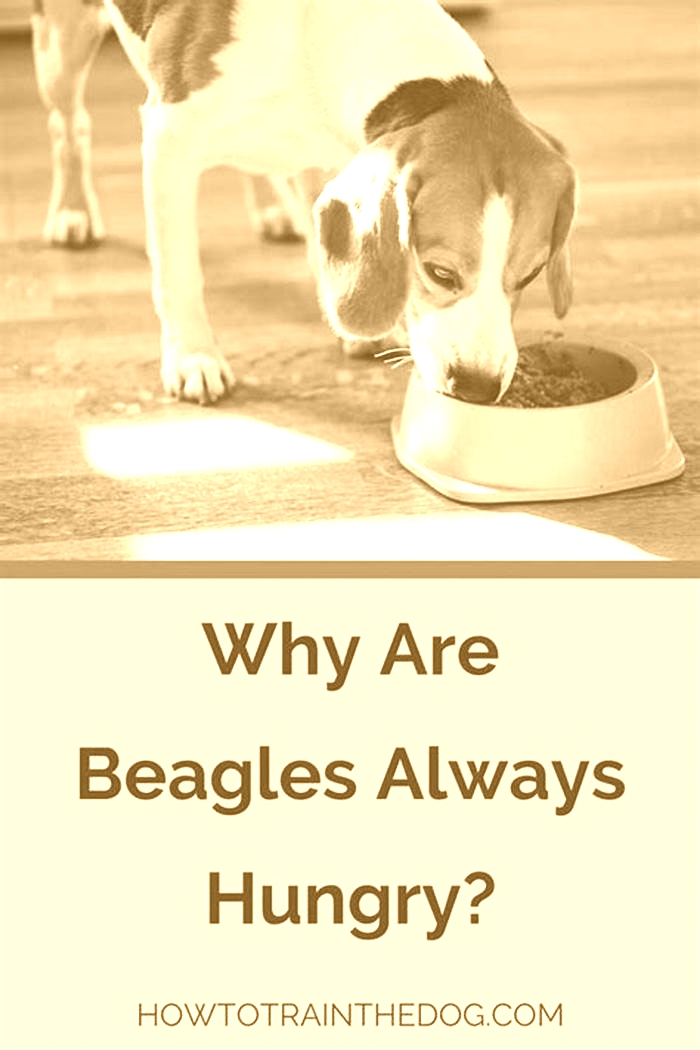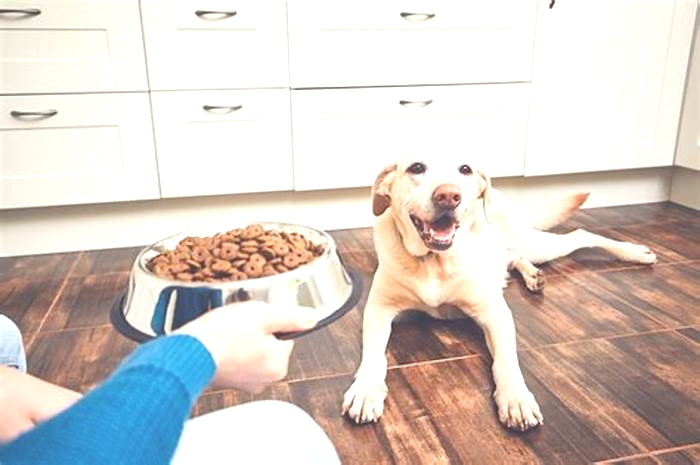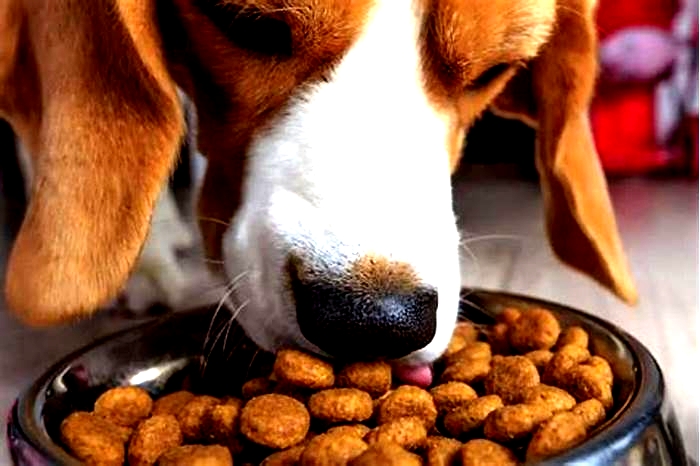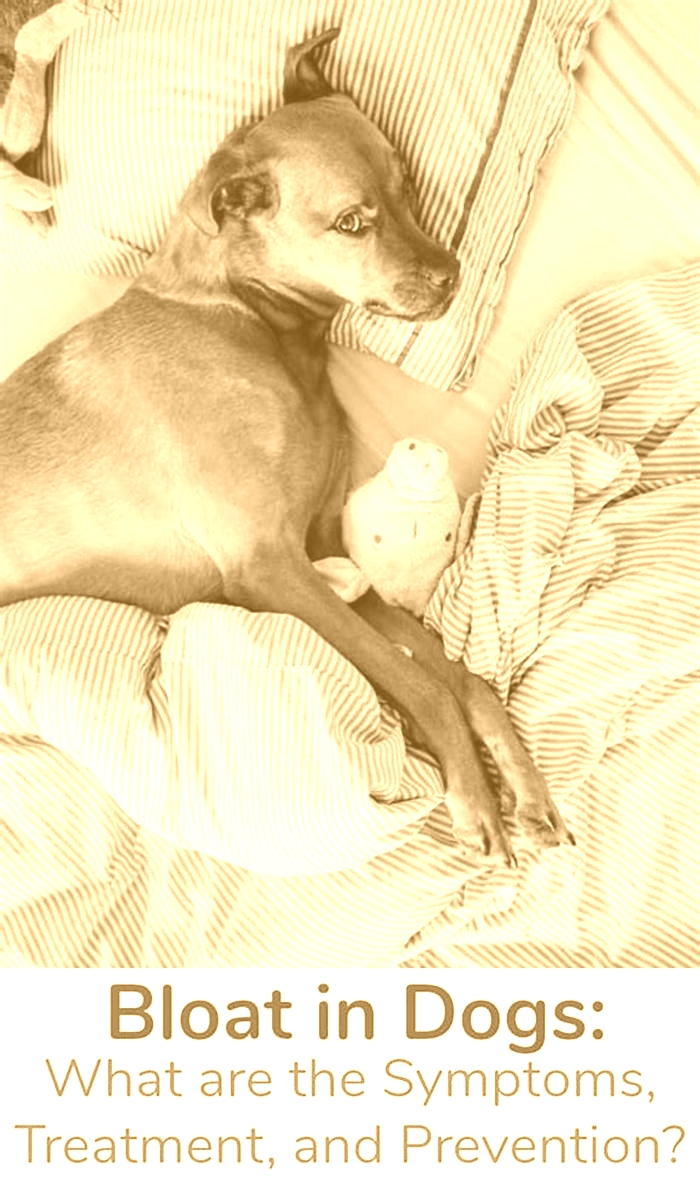Why are Dachshunds always hungry
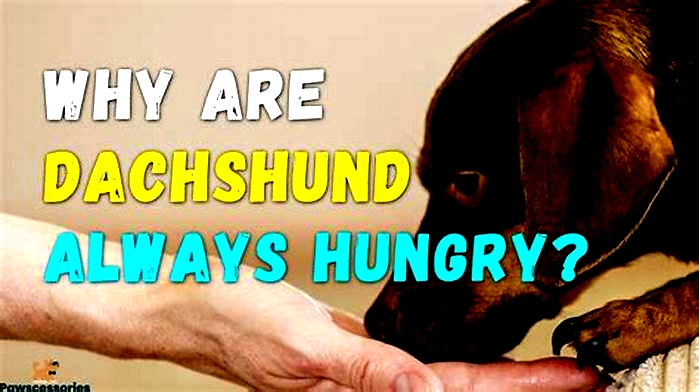
Help! My Dachshund Is ALWAYS Hungry!
Dachshunds are cool, affectionate little dogs that are beloved the world over. However, anyone that has known these greedy sausage dogs would know one thing. These little guys are GLUTTONS!
You feed them the best food and give them all the top-quality treats but still, they look at you pleadingly when youre eating your meal. What gives? Why are Dachshunds always so hungry and do Dachshunds have a big appetite or are they just greedy?
In this blog post, well look at all the reasons, behavioral or medical, why your Doxie might always be hungry. In addition, well look at why your Dachshund seems always hungry, what you should do about it, how often and much should Dachshunds be fed, and what you should feed.

Why Does My Dog Act Like Its Always Starving
The reasons that your Dachshund is always so hungry could be categorized into behavioral and medical reasons.
Some dogs simply love food more than others, and Dachshunds are known for being greedy li buggers. Although this means that they are annoying and constantly beg for food at the table and well, ALL the time, this also means that they are food motivated and easy to train.
However, overfeeding your dog can lead to obesity, a condition that Dachshunds and many other breeds are prone to. A fat Dachshund is not a healthy one, especially since these sausage dogs are prone to spinal injuries and stress.
Dachshunds are also prone to GDV - Gastric Dilatation and Volvulus. Known in laymans terms as bloat, GDV is a serious and potentially fatal condition that is known to affect Dachshunds and other deep-chested toy breeds.
GDV strikes suddenly and requires immediate medical care to save the dog's life. The good news is that there are steps you can take in advance to reduce your Dachshund's risk of developing this condition. Feeding several small meals throughout the day instead of one large meal can help reduce the chances of GDV forming in your pet.
Additionally, allowing your dog ample time for physical activity as long as he or she doesn't overexert themselves is recommended as any change in atmosphere can bring on a bout with GDV. Lastly, if your Dachshund insists on gobbling down food, try using a slow-feeder bowl or mat during meal times to slow the eating rate down. If you are feeding treats, use a treat-dispensing ball to offer a reward sparingly. As a bonus, your Dachshund will be entertained for hours!
Just like humans can eat out of stress, dogs can too. If you have recently undergone a drastic change like a relocation, or someone your dog loves in the household traveling or moving out, your dog might feel a little insecure and start stress-eating.
Once things settle down, your Doxies appetite should be back to normal. In the meantime, keep your Dachshund occupied and mentally stimulated by an interactive toy like this one.
What do you do when your Dachshund acts like it's starving with its bright, begging eyes? Did you feed your dog? If you did, even ONCE, then you can be sure that your Dachshund always associates begging for food as a way to get a tasty morsel.
If you are wondering how to get your Dachshund to stop begging for food, ignore it when it's mealtime or keep it out of the kitchen or dining area.

Even if your wiener dog is a greedy bum, there is still a chance that the reason for perpetual hunger is medical. Several medical conditions can cause your Dachshund to be hungry all the time.
Medication - Certain drugs such as prednisone can cause a dog to have an increased appetite. If you just added a new medication to your dogs diet, check with your vet on whether this might be a side effect.
Gastrointestinal Issues - Gastrointestinal issues in dogs can present themselves in many ways, and one common issue is an excessive hunger for food. While this may seem like a mild problem, it can actually be a symptom of a bigger problem at play.
Dogs with gastrointestinal issues manifesting as unrelenting hunger may suffer from several underlying conditions like hypermetabolism, exocrine pancreatic insufficiency, dysfunction of the liver or gallbladder, or even tumors in their gastrointestinal tract. A trip to the vet and all necessary testing is essential for any dog exhibiting such signs to make sure its digestive system is functioning properly.
Hyperthyroidism - The opposite of hypothyroidism, hyperthyroidism can cause more than just an enlarged thyroid in dogs; it can also have effects on their appetite. With hyperthyroidism, a dog may develop an increased appetite and may require more frequent meals because their metabolism is working overtime.
While this additional food may seem like a good thing, if the problem is not addressed, it could result in weight gain issues that could be harmful for the dog's overall health.
Nutritional Deficit - Dogs have vital dietary needs including an optimal balance of proteins, fat, carbohydrates, and essential vitamins and minerals. If just one of these components is lacking in your pet's diet, it can result in a significant nutrient deficiency that could lead to more serious health problems over time.
Therefore if your Dachshund seems to always be hungry, you should take the necessary steps to determine the cause and effectively solve the issue to ensure they are receiving the best possible nutritional support.

How Much Should A Dachshund Eat Daily
How much you should feed your Dachshund depends on your dogs size, age, lifestyle, metabolism, and overall health. Miniature Dachshunds under 11 lbs should be fed between a cup and one cup a day. Standard Dachshunds above that should be fed about a cup to 1 and cups a day.
Puppies will need smaller, more frequent meals, adult Dachshunds can eat their daily calories over two meals, and senior dogs might need fewer calories. Active dogs will need more food than sedentary ones, but be careful not to overfeed your Dachshund or it can lead to a whole lot of health problems.
Check the manufacturers instructions on the kibble pack and when in doubt, always check with your vet to make sure your wiener dog is getting enough calories a day.

What Should I Feed My Dachshund?
Feeding your Dachshund the right number of calories a day food is essential for their health, so its important to know what exactly to feed them. Look for a food that has a named source of protein in the first five ingredients - this is important as high-quality protein will give your four-legged friend the energy they need without unnecessary fillers.
Additionally, make sure you avoid any artificial colors, flavors, or preservatives in your pups food.
Dachshunds are gluttons that are not known to be finicky eaters, so they will eat everything!
By making sure you provide healthy balanced meals and adding various treats every once in a while, you can be sure that your Dachshund gets all the necessary nutrients he needs to stay happy and healthy.
Why Is My Dog Always Hungry?
Although dogs may seem perpetually interested in food, an excessive appetite (called polyphagia or hyperphagia) may signal a more serious issue that should be examined by a veterinarian.
If your dog is always hungry, they could have a problem with their metabolism, leaving them abnormally hungry, and they may be begging or whining even after eating.
So how can you tell if your dog is just very interested in food or has an underlying problem?
Heres what to look for, possible causes, and when to see a vet.
What to Check For if Your Dog Is Always Hungry
If your dog doesnt have any other symptoms and appears to be fine other than wanting to eat all the time, schedule a vet visit within 1-2 weeks or at the earliest time available.
Dogs that are suddenly hungrier than usual often have other symptoms. As a rule of thumb, any change in eating or bathroom habits should prompt a visit to the veterinarian.
Call your vet if you see any of the following:
Increased thirst and urination
Vomiting or diarrhea
Changes in weight (gain or loss)
Changes in body shape, such as a growing potbelly and shrinkage of muscle
Eating non-food items
Causes of Increased Appetite in Dogs
Theres no clear-cut cause for why a dog might be obsessed with eating. It could stem from a psychological issue, such as stress or learned behavior, or a medical issue, such as not getting the right nutrients or an underlying health condition.
Thats why youll need your vets help in getting the root of the problem. They can perform tests and ask questions to rule out certain causes. Here are some of the most common causes of increased appetite in dogs:
Psychological issues, such as anxiety or stress
Learned behavior, due to poor nutrition (either fed too much or too little)
Aging process (as dogs age, some will begin to crave food more)
Medication, such as prednisone
Metabolic disorders, such as diabetes mellitus and hypoglycemia
Cushings disease (hyperadrenocorticism)
Gastrointestinal disorders that interfere with nutrient absorption, which can include:
Parasites/infections that interfere with nutrient absorption
How Vets Find the Cause for Increased Appetite in Dogs
Your veterinarian may want to run a range of tests to determine the underlying cause for the sudden increase in appetite. They will usually start with the least invasive tests to try to rule things out. Here are some diagnostics your vet may want to do:
Completemedical history and physical examination
Blood panels, such as a complete blood count
Urinalysis
Tests for parasites, such as fecal flotation and Giardia tests
Adrenocorticotropic hormone (ACTH) stimulation test or low-dose dexamethasone suppression test(LDDS) to check for Cushings disease
Imaging tests such as ultrasound
Serum trypsin-like immunoreactivity test (TLI) to check for exocrine pancreatic insufficiency
Endoscopy examination (may be considered after additional testing is completed)
Treatment of Increased Appetite in Dogs
Dont delay in getting your dog examined by a veterinarian if they appear to be suffering from constant hunger. Treatment will include giving your dog supportive care for the symptom of polyphagia as well as dealing with any underlying conditions:
Behavioral-related causes may be addressed by feeding smaller portions more frequently and carefully supervising your dogs food consumption.
A metabolic issue, such as diabetes mellitus, may be treated with daily insulin injections and dietary changes.
If Cushings disease is diagnosed, medication may be prescribed.
Infection or parasites will be treated with medication and/or deworming.
For exocrine pancreatic insufficiency, your vet will recommend dietary changes and medications.
Treatment for cancer can include chemotherapy, surgery, and radiation treatments.
Increased Appetite in Dogs FAQs
Do dogs eat more as they get older?
Yes. Sometimes this is due to underlying health conditions, such as diabetes mellitus or Cushings disease, or a medication theyre taking, like prednisone.
Why does my dog eat like hes starving?
Many conditions can trigger increased appetite in dogs. A dog may have learned the behavior because they were not properly fed or became anxious about food. Or, they may have developed a metabolic condition or infection or have parasites. Your vet will need to do an exam, ask questions, and do some tests to rule out certain causes.
When is overeating a concern for dogs?
You should call your vet if you notice a sudden and dramatic change in your dogs dietary habits.
Why Is My Dachshund Always Hungry
Are you constantly wondering why your dachshund is always hungry? Well, youve come to the right place! In this article, we will explore the reasons behind their insatiable appetite. From their unique metabolism to potential health issues, well uncover the truth behind your furry friends constant cravings. So, lets dive into the world of dachshunds and discover why they are always hungry!
Dachshunds Diet and Nutrition
Understanding the breeds food requirements
When it comes to feeding your Dachshund, its important to understand their specific food requirements. Dachshunds are a small breed with unique nutritional needs, including proper vitamins, minerals, and protein. Their diet should consist of high-quality dog food that is specifically formulated for small breeds, as this will provide them with the necessary nutrients to thrive.
Common nutritional needs of dachshunds
Dachshunds have specific nutritional needs that must be met to ensure their overall health and well-being. These include a balance of protein, fats, carbohydrates, vitamins, and minerals. Protein is particularly important for Dachshunds, as it helps maintain their lean muscle mass. Fats provide them with energy, while carbohydrates are a source of fuel for their bodies. Additionally, vitamins and minerals are essential for supporting their immune system and promoting proper growth.
The importance of a balanced diet
A balanced diet is crucial for your Dachshunds health and longevity. By providing them with a variety of nutrients in the correct proportions, you can help prevent nutritional deficiencies and promote optimal health. A balanced diet includes high-quality proteins, such as lean meats or fish, as well as carbohydrates from sources like whole grains and vegetables. It is also essential to include healthy fats, such as omega-3 fatty acids, which are beneficial for their coat and skin health.
Potential consequences of poor nutrition
Poor nutrition can have significant consequences for your Dachshunds health. It can lead to a range of issues, including obesity, malnutrition, digestive disorders, and a weakened immune system. Moreover, inadequate nutrition can impact their energy levels, coat quality, and overall vitality. To ensure your Dachshund remains healthy and happy, its vital to pay attention to their diet and provide them with the necessary nutrients they require.
Health Issues and Increased Appetite
Dental problems affecting eating habits
Dental problems can have a significant impact on a Dachshunds eating habits. Issues such as gum disease, tooth decay, or tooth loss can make chewing uncomfortable or painful for your pet. As a result, they may experience difficulty eating and choose to avoid harder foods altogether. If you notice any signs of dental issues, such as bad breath or difficulty chewing, it is essential to schedule a veterinary dental examination.
Hormonal imbalances and excessive hunger
Hormonal imbalances can also contribute to increased appetite in Dachshunds. Conditions such as hypothyroidism, in which the thyroid gland produces insufficient hormones, can lead to an increased appetite. If you suspect a hormonal imbalance may be causing your Dachshunds excessive hunger, it is crucial to consult with your veterinarian. They can perform the necessary tests and recommend appropriate treatment options.
Digestive disorders and increased appetite
Dachshunds can also develop digestive disorders that impact their appetite. Conditions such as food intolerances, inflammatory bowel disease, or gastrointestinal infections can lead to increased hunger. In some cases, the digestive system may not properly absorb nutrients, leaving your Dachshund feeling constantly hungry. Identifying and addressing these underlying digestive issues is crucial to help alleviate their excessive appetite.
Metabolic conditions impacting food intake
Certain metabolic conditions can also affect a Dachshunds food intake. For example, dogs with Cushings disease may experience an increased appetite due to elevated cortisol levels. Similarly, diabetes can disrupt the bodys ability to regulate blood sugar levels, leading to excessive hunger. If you suspect your Dachshund may have a metabolic condition, it is essential to consult your veterinarian for proper diagnosis and treatment.
Feeding Schedule and Portion Control
Establishing a regular feeding routine
Establishing a regular feeding routine is important for your Dachshunds overall well-being. By feeding them at set times each day, you can help regulate their metabolism and digestion. Aim to feed your Dachshund at least two meals a day, spaced out evenly, to avoid long periods without food. Additionally, consistency in meal times can help prevent begging behaviors and excessive hunger between meals.
Determining appropriate serving sizes
To ensure your Dachshund receives the correct portion sizes, its important to consider their age, weight, and activity level. Dachshunds are prone to obesity, so its crucial to avoid overfeeding. Consult your veterinarian for guidance on the appropriate serving sizes for your dog. Its also worth noting that serving sizes may need to be adjusted as your Dachshund ages or if their activity level changes.
Understanding the role of age and weight
Both age and weight play a significant role in determining the appropriate feeding amounts for your Dachshund. Puppies have different nutritional needs than adult dogs, requiring food that supports their rapid growth and development. As your Dachshund matures into an adult, their food requirements may change. Additionally, overweight or obese Dachshunds may need to be placed on a weight management diet to help them reach a healthy weight.
The benefits of controlled portions
Controlling your Dachshunds portions can have numerous benefits for their health and well-being. By providing them with the correct amount of food, you can help prevent obesity and associated health issues. Controlled portions also ensure that your Dachshund is receiving the necessary nutrients without overconsumption, which can lead to digestive issues. Implementing portion control can help maintain your Dachshunds ideal weight and promote longevity.
Inadequate Diet and Hunger
Insufficient food leading to constant hunger
Providing your Dachshund with insufficient food can result in constant hunger. Inadequate portion sizes or poor-quality food may leave your Dachshund feeling unsatisfied and craving more food. Its important to ensure that your Dachshunds diet is nutritionally balanced and provides them with the appropriate amount of calories for their age and activity level. If you suspect that inadequate food may be causing your Dachshunds excessive hunger, consult your veterinarian for dietary recommendations.
Low-quality commercial dog food and hunger
Low-quality commercial dog food may also contribute to your Dachshunds persistent hunger. Some inexpensive dog foods contain fillers, artificial additives, and low-quality ingredients that offer little nutritional value. This can leave your Dachshund feeling hungry even after eating. To ensure your Dachshunds food satisfies their hunger, opt for high-quality dog food brands that prioritize real, nutritious ingredients.
Lack of essential nutrients causing increased appetite
A diet lacking essential nutrients can result in increased appetite in Dachshunds. When their bodies are deprived of necessary vitamins, minerals, and protein, they may experience a constant sensation of hunger. Its crucial to provide your Dachshund with a diet that meets their nutritional needs. This includes ensuring they receive the appropriate balance of macronutrients and essential micronutrients through a well-rounded diet.
The importance of high-quality ingredients
High-quality ingredients are vital for your Dachshunds overall health and satiety. Look for dog food that lists real meat as the first ingredient and avoids fillers or artificial additives. Ingredients like chicken, beef, or fish are excellent sources of protein for your Dachshund. Fruits, vegetables, and whole grains can provide additional vitamins, minerals, and fiber. By prioritizing high-quality ingredients, you can help satisfy your Dachshunds hunger while supporting their overall health.
Behavioral Factors
Begging for food as a learned behavior
Dachshunds may beg for food as a learned behavior, especially if they have been rewarded for it in the past. If you have given in to their begging behaviors, they may continue to seek food as a means of attention or reward. As an owner, its important to establish boundaries and avoid reinforcing this behavior. By providing your Dachshund with scheduled, balanced meals, you can help discourage begging for food.
Attention-seeking and food-related rewards
Dachshunds are intelligent dogs that crave attention and human interaction. They may resort to food-related behaviors as a means of seeking attention from their owners. If your Dachshund believes that begging or displaying excessive hunger will result in attention or treats, they may continue these behaviors. Its important to establish alternative ways to provide attention and rewards, such as training sessions, playtime, or affection, to avoid reinforcing food-seeking behaviors.
Anxiety or boredom leading to food cravings
Anxiety or boredom can also contribute to food cravings in Dachshunds. Like humans, dogs may turn to food as a coping mechanism for stress or as a means of entertainment. If your Dachshund experiences anxiety or boredom, they may exhibit increased hunger as a result. Providing mental stimulation, regular exercise, and affection can help alleviate these feelings, reducing the likelihood of unnecessary food cravings.
The role of exercise in appetite regulation
Regular exercise is essential for maintaining a healthy weight and regulating appetite in Dachshunds. Physical activity helps burn calories, builds muscle mass, and supports overall metabolic function. By ensuring your Dachshund receives daily exercise, you can help prevent excessive hunger caused by boredom or a sedentary lifestyle. Engage in activities such as walks, playtime, or interactive toys to provide both mental and physical stimulation for your Dachshund.
Food Allergies and Sensitivities
Identifying potential food allergies
Dachshunds, like other dogs, can develop food allergies or sensitivities. Common allergens include ingredients such as grains, certain meats, dairy products, or artificial additives. If your Dachshund has a food allergy, it can lead to symptoms such as itching, skin rashes, digestive upset, or even increased appetite. If you suspect your Dachshund may have a food allergy, consult your veterinarian for allergy testing and specific dietary recommendations.
Signs of food sensitivity in Dachshunds
Food sensitivities can present differently than outright allergies in Dachshunds. While allergies typically produce immediate and noticeable symptoms, sensitivities may be subtler and develop over time. Signs of food sensitivity in Dachshunds can include diarrhea, vomiting, excessive gas, or chronic ear infections. Increased appetite can also be a symptom, as your Dachshunds body may be trying to compensate for a lack of nutrients due to malabsorption.
Increased appetite as an allergic response
In some cases, increased appetite can be a response to a food allergy or sensitivity in Dachshunds. When their body reacts to an allergen, it can cause inflammation or irritation in the digestive system. This can interfere with nutrient absorption and lead to increased hunger as the body attempts to compensate for the lack of nutrients. Identifying and eliminating the allergen from your Dachshunds diet can help alleviate their constant hunger.
Switching to hypoallergenic diets
If your Dachshund has been diagnosed with a food allergy or sensitivity, switching to a hypoallergenic diet may be necessary. Hypoallergenic diets are specifically formulated to minimize the risk of triggering a reaction in dogs with food allergies or sensitivities. These diets typically utilize novel protein sources and avoid common allergens. By transitioning your Dachshund to a hypoallergenic diet, you can help alleviate their symptoms and reduce their excessive appetite.
Underlying Medical Conditions
Thyroid problems and excessive hunger
Thyroid problems, such as hypothyroidism, can lead to an increased appetite in Dachshunds. Hypothyroidism occurs when the thyroid gland fails to produce enough hormones. As a result, your Dachshunds metabolism slows down, causing weight gain and an insatiable hunger. If you suspect that your Dachshund may have a thyroid problem, its crucial to consult with your veterinarian for proper diagnosis and treatment.
Cushings disease and its impact on appetite
Cushings disease, also known as hyperadrenocorticism, can affect your Dachshunds appetite. It occurs when the body overproduces cortisol, a stress hormone. Dogs with Cushings disease often exhibit an increased appetite, leading to excessive eating and potential weight gain. If you suspect your Dachshund may have Cushings disease, consult with your veterinarian to discuss diagnostic tests and treatment options.
Diabetes and increased food consumption
Diabetes can cause increased food consumption in Dachshunds. This condition occurs when the body is unable to properly regulate blood sugar levels. If your Dachshund has diabetes, they may experience constant hunger as their body struggles to utilize glucose for energy. Managing diabetes typically involves insulin therapy and a carefully controlled diet. Consulting with your veterinarian is vital to ensure your Dachshund receives the proper treatment and dietary adjustments.
Gastrointestinal issues and insatiable hunger
Gastrointestinal issues, such as parasites, infections, or inflammatory bowel disease, can lead to insatiable hunger in Dachshunds. These conditions can disrupt the digestion and absorption of food, leading to nutrient deficiencies. As a result, your Dachshund may experience constant hunger as their body tries to compensate for the lack of essential nutrients. If you suspect gastrointestinal issues may be causing your Dachshunds excessive hunger, consult with your veterinarian for proper diagnosis and treatment.
Overfeeding and Obesity
The risks of overfeeding Dachshunds
Overfeeding Dachshunds can result in numerous health risks, the most prominent being obesity. Dachshunds are prone to weight gain, which can strain their joints, lead to cardiovascular issues, and shorten their lifespan. Overfeeding can also exacerbate underlying health conditions and increase the risk of developing diabetes, arthritis, or respiratory problems. Understanding the appropriate portion sizes and feeding guidelines for your Dachshund is crucial to prevent overfeeding.
Obesity-related health problems
Obesity in Dachshunds can significantly impact their health and quality of life. It puts them at a higher risk of developing a range of health problems, including diabetes, heart disease, orthopedic issues, and even certain types of cancer. Additionally, obesity can reduce their energy levels, increase the strain on their joints, and impair their ability to engage in physical activities. Proper portion control and regular exercise are key to help prevent obesity-related health problems.
Avoiding excessive treats and table scraps
Treats and table scraps can contribute to overfeeding and excessive hunger in Dachshunds. While the occasional treat is acceptable, its important to avoid feeding your Dachshund too many extra calories throughout the day. Treats and table scraps should be limited and given in moderation. Its also worth considering healthier alternatives, such as low-calorie treats or fresh fruits and vegetables, as occasional rewards for your Dachshund.
Consulting a veterinarian for portion control
If you are unsure about the appropriate portion sizes or the best feeding practices for your Dachshund, consulting a veterinarian is highly recommended. They can evaluate your Dachshunds overall health, weight, and activity level to provide personalized recommendations. Your veterinarian can also monitor your Dachshunds progress and make any necessary adjustments to their diet or feeding schedule to ensure they maintain a healthy weight.
Consulting a Veterinarian
When to seek professional advice
If you notice that your Dachshund is constantly hungry or exhibiting unusual feeding behaviors, its important to consult with a veterinarian. They can help determine the underlying factors contributing to their excessive appetite and provide appropriate solutions. Additionally, if you suspect your Dachshund may have an underlying medical condition, such as thyroid problems or diabetes, seeking professional advice is vital to ensure a proper diagnosis and treatment plan.
Importance of a thorough health evaluation
A thorough health evaluation is essential when addressing your Dachshunds constant hunger. Your veterinarian will conduct a physical examination, take a detailed medical history, and may recommend diagnostic tests to identify any underlying health issues. By understanding the complete picture of your Dachshunds health, your veterinarian can develop an appropriate treatment plan and dietary recommendations.
Professional guidance on diet and feeding
Your veterinarian is a trusted source of professional guidance when it comes to your Dachshunds diet and feeding. They can provide personalized recommendations based on your Dachshunds age, weight, activity level, and overall health. They may suggest specific dog food brands, recommend dietary supplements, or advise on portion control and feeding schedules. Following their guidance can help ensure your Dachshund receives the nutrients they need while addressing their constant hunger.
Addressing any underlying health issues
If your Dachshunds constant hunger is linked to an underlying health condition, such as hormonal imbalances or gastrointestinal issues, addressing these issues is crucial. Your veterinarian can prescribe appropriate medications, recommend dietary changes, or provide other treatment options to manage the underlying health issue. By addressing the root cause, you can alleviate your Dachshunds excessive hunger and improve their overall quality of life.
Conclusion
Recognizing the reasons behind a Dachshunds constant hunger is crucial for their health and well-being. Understanding their specific dietary requirements, establishing a regular feeding schedule, and practicing portion control are essential steps to address excessive hunger. Identifying and addressing any underlying health issues, such as dental problems or hormonal imbalances, is also vital. Remember to consult with your veterinarian for professional guidance, as they can provide personalized recommendations and ensure your Dachshund receives the proper care. By promoting a healthy and balanced lifestyle and maintaining regular veterinary check-ups, you can help your furry friend live a long, happy, and hunger-free life.

